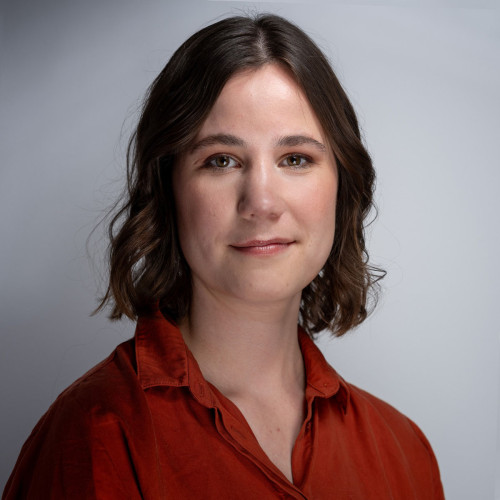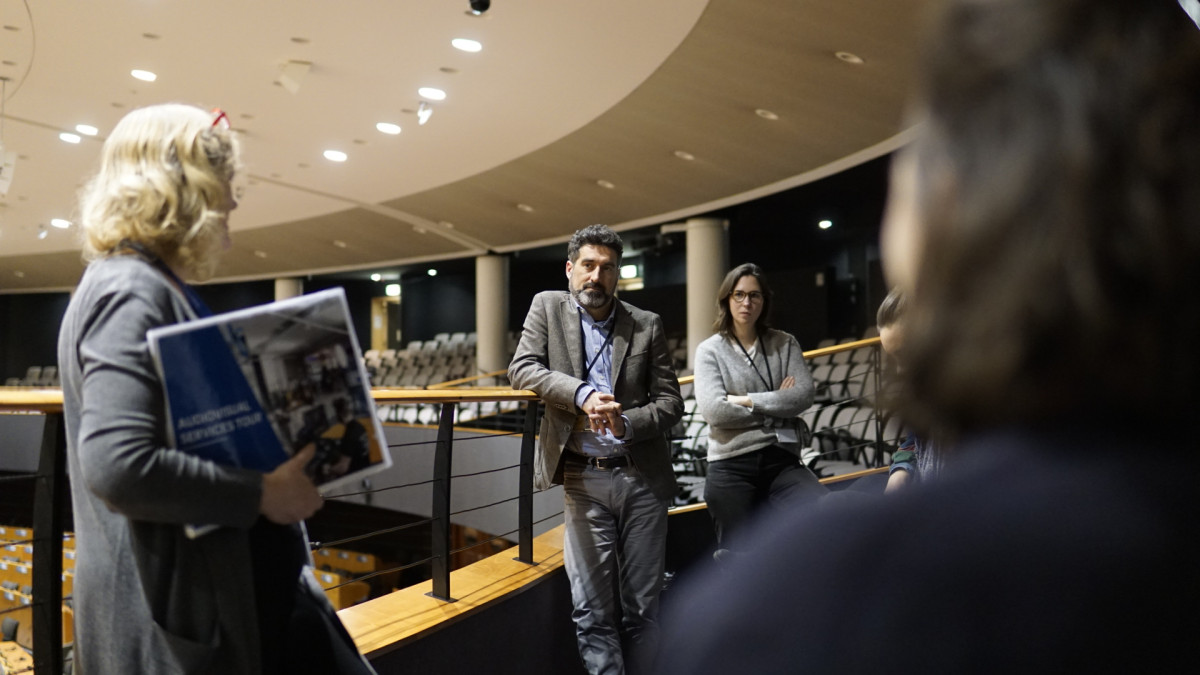Covering the climate: Work experience at Clean Energy Wire
How would you describe your fellowship experience at CLEW?
Franca Quecke: "While working at German news outlet Der Spiegel I mainly wrote about economic and career topics. I joined CLEW because I wanted to learn how to cover environmental and energy stories properly, with the necessary accuracy and urgency, as I felt that many stories oversimplified the topic or conveyed a sense of helplessness.
The four CLEW newsroom journalists with their diverse expertise were always patient with me and provided valuable feedback on everything, from the smallest blurb to longer FAQs. More than that, they always encouraged me to just get started: during my three months working in the newsroom I wrote “blurbs” (CLEW talk for short news) about extreme weather or waste heat, covered reactions on the EU’s 2040 climate target proposal, and worked on longer pieces about CCS and Fridays for Future. I also got plenty of opportunities to venture outside the office. I went on a CLEW research tour to learn about the Dutch shift to right-wing populism and what the country's nitrogen crisis and farmers' protests had to do with it. I was sent to climate protests, to the British Embassy to learn from women in the energy sector, to a cement factory, and was part of the BETD Fellowship and the Handelsblatt Energy Summit. After three months, I was full of impressions and experiences and had a solid starting point for future climate and energy coverage.
This is the support that CLEW offers journalists: To make climate and energy issues tangible, and to give you the opportunity to get involved. I encourage anyone who needs help or guidance with a story or investigation: Ask CLEW."
"At the research tour or events organised by CLEW, I experienced first-hand how helpful it is to tap into this network; to learn from diverse viewpoints, shared best practices, and discover new stories"
What do you think sets CLEW apart?
"CLEW’s work is unique in three ways, each tailored to meet the diverse needs of journalists and their audience: First, the newsroom reporters provide up-to-date coverage and in-depth analyses, factsheets and dossiers that bring together essential context and background information on developments in the energy sector, climate policy and related areas. Their stories are well researched, transparently documented with references via links and backed up with data and graphics.
Second, CLEW organises conferences, background briefings and workshops for journalists, and collaborates with other media organizations and experts.
Third, CLEW boasts a huge network of journalists, experts and relevant stakeholders. At the research tour or events organised by CLEW, I experienced first-hand how helpful it is to tap into this network; to learn from diverse viewpoints, shared best practices, and discover new stories, contacts or possible funding.
CLEW is based in Germany but does not only focus on the country’s Energiewende. CLEW’s coverage offers a full European perspective on energy transition and climate policies. Their cross-border reporting, including weekly dispatches (and the cross-border grants they offer for journalists!), acknowledges that the climate crisis and energy transition is not bound by national borders.
Climate change impacts every major issue of our time, from the economy and political shifts to mobility and healthcare. Thus, rather than treating the climate crisis as a 'single issue', CLEW understands its overlapping root causes and consequences and integrates them into its daily coverage."
Anything that stood out for you?
"CLEW, as well as the Klimafakten team, have created a warm and inclusive working environment in its Kreuzberg office. Every perspective and opinion is welcome and encouraged. This is clear during the weekly team and staff meetings where everyone’s input is encouraged. And more than that, from day one I was taken to lunch, choir concerts at the weekend, and after-work drinks near the office. You know you enjoy your work when you look forward to it in the morning. That's what I had at CLEW.
What really impressed me about the newsroom team is their journalistic approach,using nuanced and constructive language that is clear and never alarmist. Beyond that, CLEW also has the freedom to not cover certain issues, and refuses to jump at every headline thrown its way by politicians and businesses just to generate publicity. Instead, careful consideration is given to what topics to cover and how. During sometimes-heated newsroom discussions, I saw first-hand how team members constantly question and challenge their reporting."
What was the biggest lesson you learned?
"My biggest lesson may sound trite but, in the age of fast news and easy spins, it is something I value as both a journalist and a reader: the importance of context and background in daily reporting; that one paragraph of news should be supported by two paragraphs of background and context. Where did these record temperatures come from? How should these figures or this claim be contextualised and interpreted? It should be a given for all media outlets, but I really appreciate that CLEW enriches its news with context and background knowledge, and offers its readers guidance rather than leaving them with more questions than answers."


